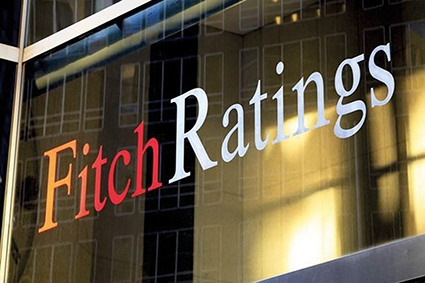Fitch Upgrades Georgia to 'BB’, Outlook Stable
Fitch Ratings Inc., one of the "Big Three credit rating agencies," has upgraded Georgia's Long-Term Foreign-Currency Issuer Default Rating (IDR) to 'BB' from 'BB-'. The Outlook is “Stable”.
Fitch noted that so far Georgia's economy has been resilient to the negative developments of 2018.
The information released by the agency reads that economic growth remained robust, the currency was relatively stable and the National Bank of Georgia (NBG) built reserves despite a severe economic shock in Turkey and a heightened sanctions risk in Russia.
“Georgia's resilience reflects a diversification of sources of current account inflows, the floating exchange rate and prudent fiscal and monetary policy settings, underpinned by steadfast adherence to its IMF program,” the agency said, adding that all requirements under the Extended Fund Facility with the IMF were achieved as of end-June 2018 and end-December 2018.
Fitch added that external imbalances are gradually easing. Georgia's current account deficit is structurally high, but Fitch estimates that it narrowed to 7.5% of GDP in 2018, despite the testing external environment.
The agency noted that in 2017, Russia and Turkey were Georgia's second- and third-largest trading partners, respectively, in addition to being leading sources of tourists, remittance and FDI, although financial sector links are small.
“Rising tourism revenues and remittances, notably from the EU, and exports, resulted in an estimated 13.9% increase in current external receipts. The first quarterly current account surplus on record was recorded in Q3, the peak tourism season,” the agency said.
Fitch forecasts a further narrowing of the current account deficit, adding the recently launched funded pension pillar in Georgia will likely encourage savings, and the implementation of macro-prudential measures will lead to a deceleration in consumer lending, reducing pressure on imports.
“The deficit is expected to remain over 7% of GDP to 2020, which is large compared with the current 'BB' median of 2%... We forecast inflation to remain in line with the NBG target of 3.0% (and below the current peer median of 3.5%) in 2019-2020,” it added.
The agency says that Georgia’s fiscal policy is consistent with a gradual decline in gross general government debt (GGGD)/GDP, which they forecast at 42.5% of GDP in 2019, lower than the current 'BB' median of 48.1%.
“We expect the share of external debt to decrease, as the government increases local issuance to deepen the domestic capital market,” the statement reads.
Fitch forecasts that sustained FDI, along with portfolio flows and private sector borrowing will fully finance the current account deficit.
“Net foreign direct investment slowed in 2018 to 7.4% of GDP, from 9.5% in 2017, due to the completion of a large infrastructure project. We expect it to recover in 2019-2020 to an average 8% of GDP, boosted by new Free Trade Agreements, large projects in the transportation sector and development of the Anaklia Port,” the agency noted.
In addition, Fitch expressed hope that the central bank will continue its policy of reserve accumulation through interventions in the FX market and the launching of FX options in 2019, while remaining committed to a floating exchange rate.
Moreover, Fitch forecasts reserves to rise to $3.5 billion at end-2019 from $3.3 billion at end-2018.
External finances remain a key rating weakness for Georgia according to Fitch, with net external debt at 61.9% of GDP at the end of 2018, higher than the current 'BB' median.
However, the agency added that governance and business environment indicators are well above the current medians of 'BB' category peers, with Georgia ranking 6th out of 190 in the 2019 World Bank Ease of Doing Business Indicator.
Georgian Prime Minister Mamuka Bakhtadze commented on Fitch's decision to upgrade Georgia’s rating.
“It is a tremendous success and, moreover, according to the current data, we are the only country in the greater region to advance in the Fitch ratings,” he said at a press conference on February 25.
Bakhtadze explained that it is a sign of Georgia's economy being more competitive, enabling the attraction of more investments as well as job creation.
“It also means that fewer risks are associated with the economy, leading to decreased interest rates on loans. It is the most significant support towards the correct economic policy being pursued by Georgia,” he noted.
The PM explained that advancement in the rating further increases the trust of international institutions and investors towards Georgia.
“It is positively reflected in the business environment of the country and, what is most important, it will have a direct correlation with our main challenge - the elimination of poverty,” he claimed.
Bakhtadze said that success was achieved by implementing effective reforms in the country, which helped reduce the current account deficit.
“The historic problem of our economy is that Georgia was always heavily dependent on imports. We managed to alter this pressing issue, which means that we are solidly and rightly pursuing a road leading to a further reduction of this deficit. This very fact has been one of the most significant sources of poverty in Georgia… Yet we have now managed to make the economy more sustainable and resistant to external shocks,” he explained.
The PM pointed out that the current success in the Fitch rating indicates that the Government of Georgia is carrying out fundamental reforms which make the economy more competitive, and that "this is an explicit fact."
“At the same time, personally, for me, it is yet another clear example of us succeeding in our main strategy for the future by transforming Georgia into a regional economic hub,” he added.
By Thea Morrison
Image source: newsbook.com.mn











